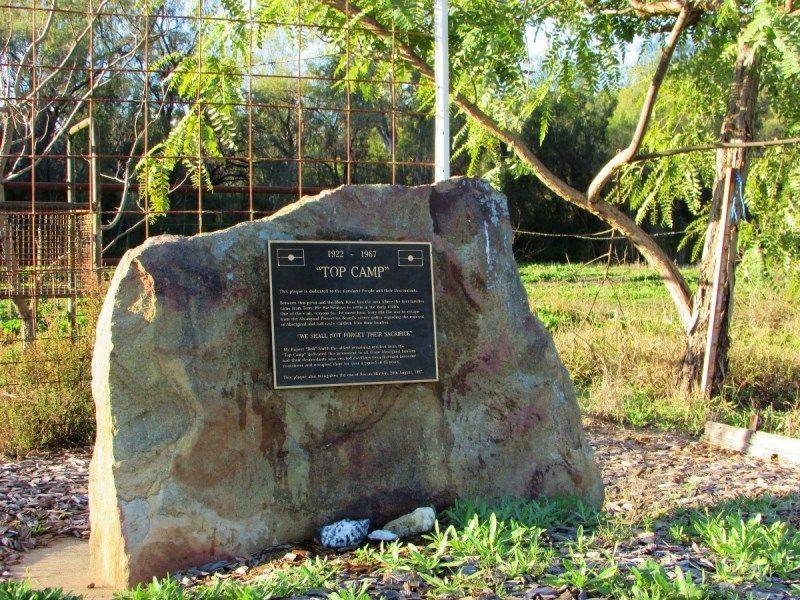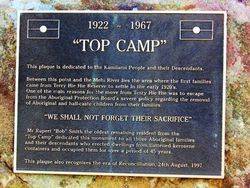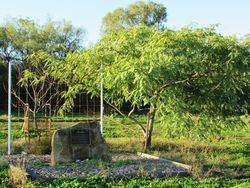
Home » Themes » Culture » Indigenous
Top CampPrint Page 
The plaque commemorates the Kamilaroi People and their descendants who established ' Top Camp' in the 1920s. The area from the plaque to the Mehi River marks the `Top Camp`.
The first families that came to this area were from the Terry Hie Hie Reserve. They came to settle this area in the early 1920`s to escape the Aboriginal Protection Boards severe policy regarding the removal of Aboriginal and half-caste children from their families. For 45 years Aboriginal people lived in tin huts at the largest camp known as the 'Top Camp' in Moree. They moved into 27 houses built by the Aboriginal Welfare Board in 1967. The area was named Stanley Village after the well-known Aboriginal Ex-Serviceman, Mr Alexander Stanley, who served in World War One and Two. Those from the Top Camp moved to Stanley Village because it was not a reserve and it did not have a Manager.
Location
| Address: | Gwydir Highway , Top Camp Site, Moree, 2400 |
|---|---|
| State: | NSW |
| Area: | AUS |
| GPS Coordinates: | Lat: -29.473384 Long: 149.857793 Note: GPS Coordinates are approximate. |
Details
| Monument Type: | Plaque |
|---|---|
| Monument Theme: | Culture |
| Sub-Theme: | Indigenous |
Dedication
| Actual Monument Dedication Date: | Sunday 24th August, 1997 |
|---|
1922 ~ 1967
"TOP CAMP"
This plaque is dedicated to the Kamilaroi People and their Descendants.
Between this point and the Mehi River lies the area where the first families came from Terry Hie Hie reserved to settle in the early 1920s.
One of the main reasons for the move from Terry Hie Hie was to escape from the Aboriginal Board's severe policy regarding the removal of Aboriginal and half-caste children from their families.
"We Shall Not Forget Their Sacrifice"
Mr. Rupert "Bob" Smith the oldest remaining resident from the "Top Camp" dedicated this monument to all those Aboriginal families and their descendants who erected dwellings from flattened kerosene containers and occupied them for over a period of 45 years.
This plaque also recognises the era of reconciliation, 24th August, 1997.







